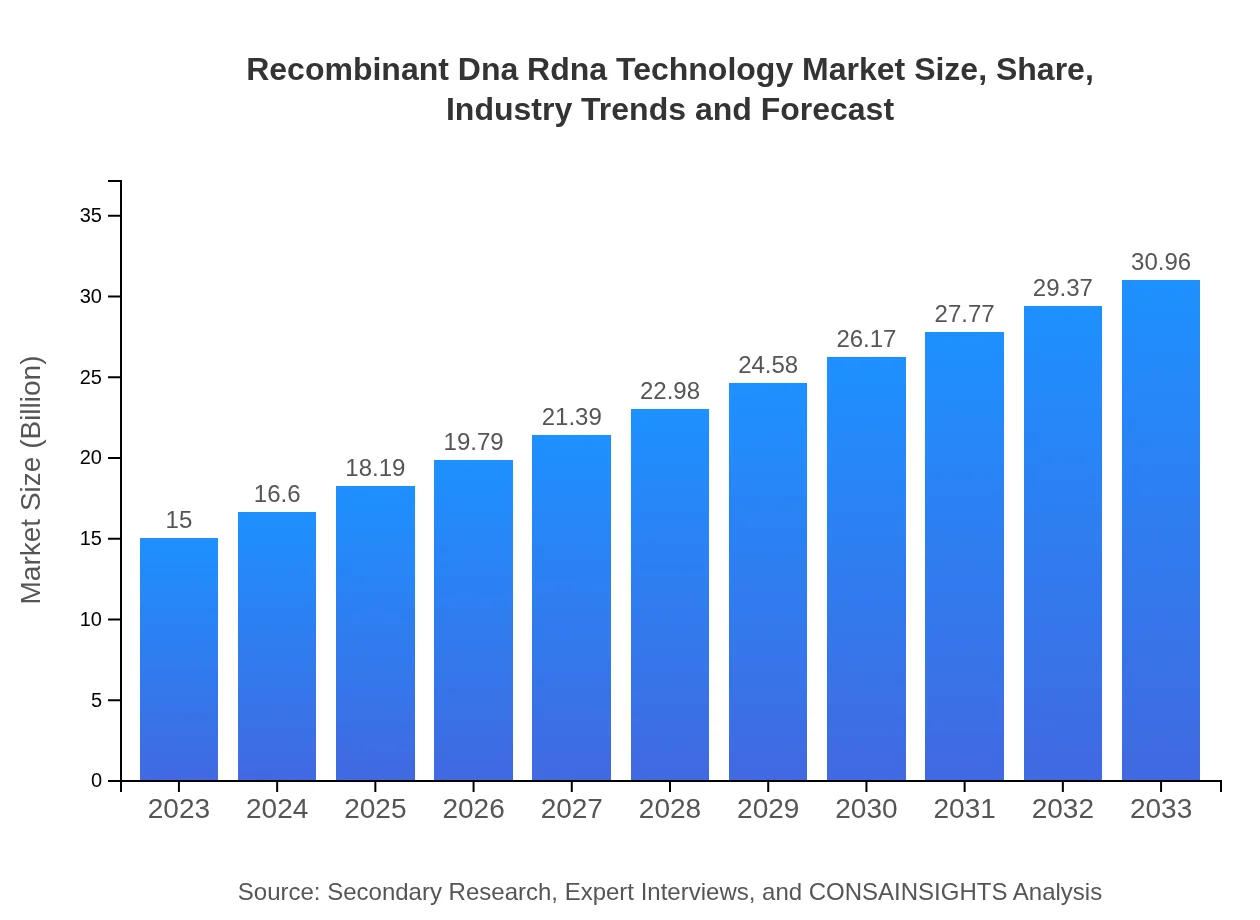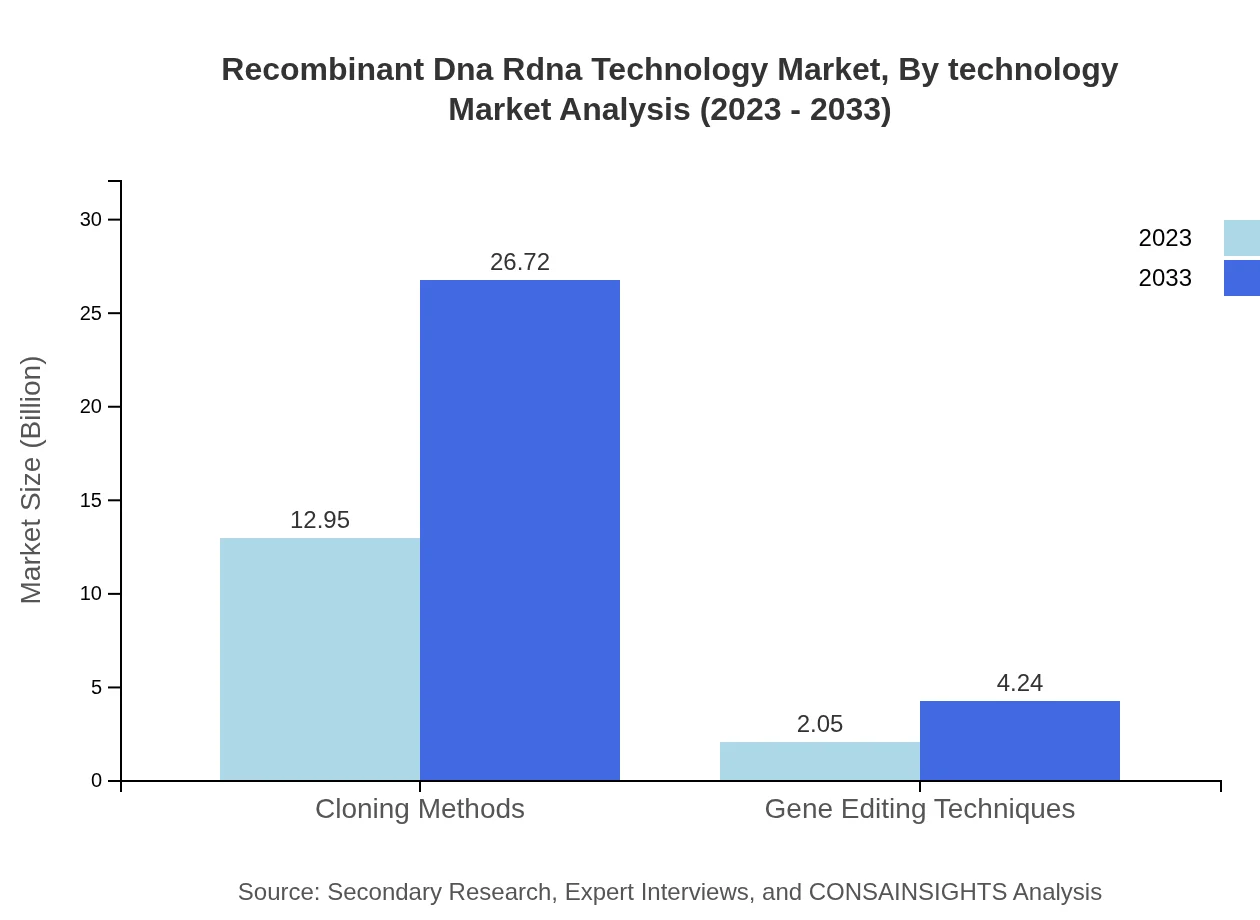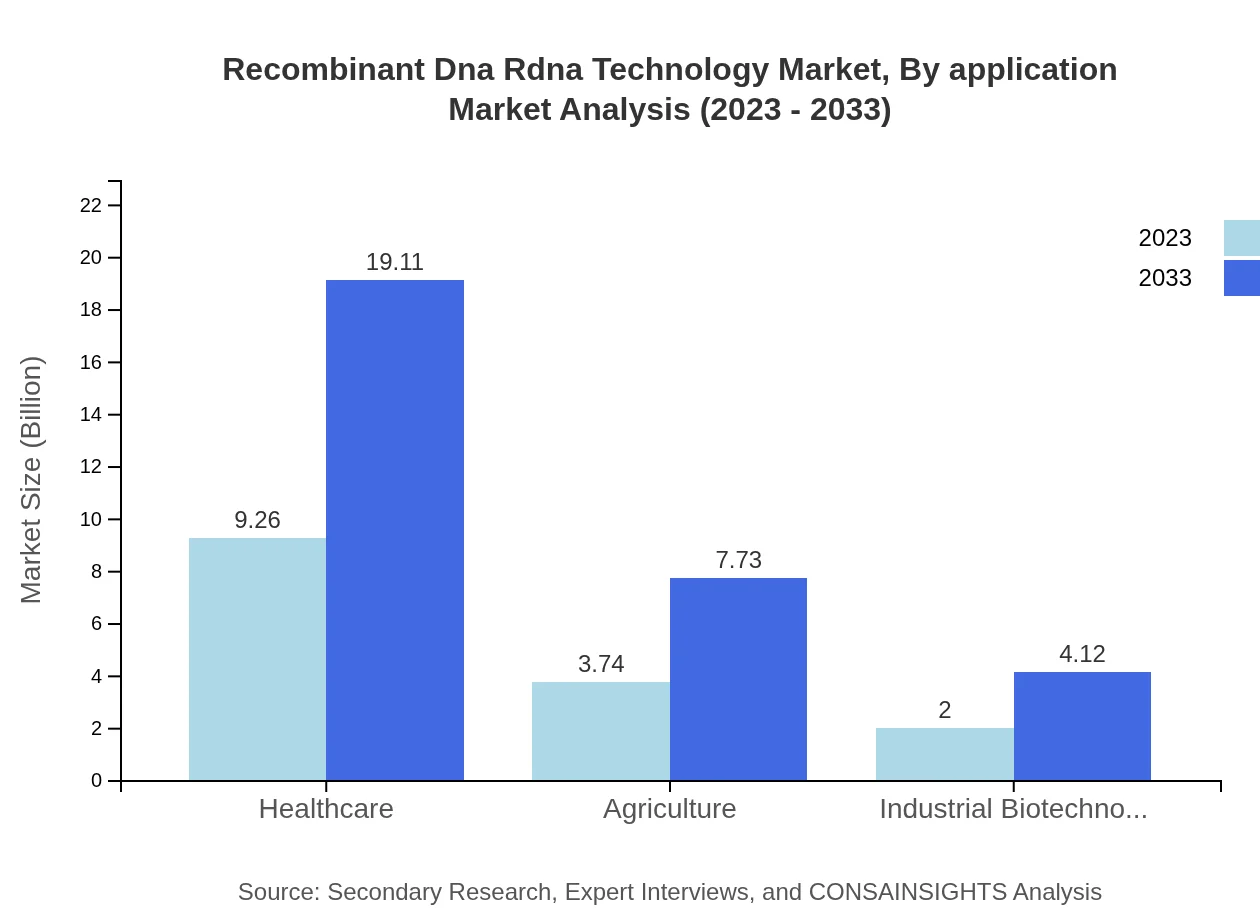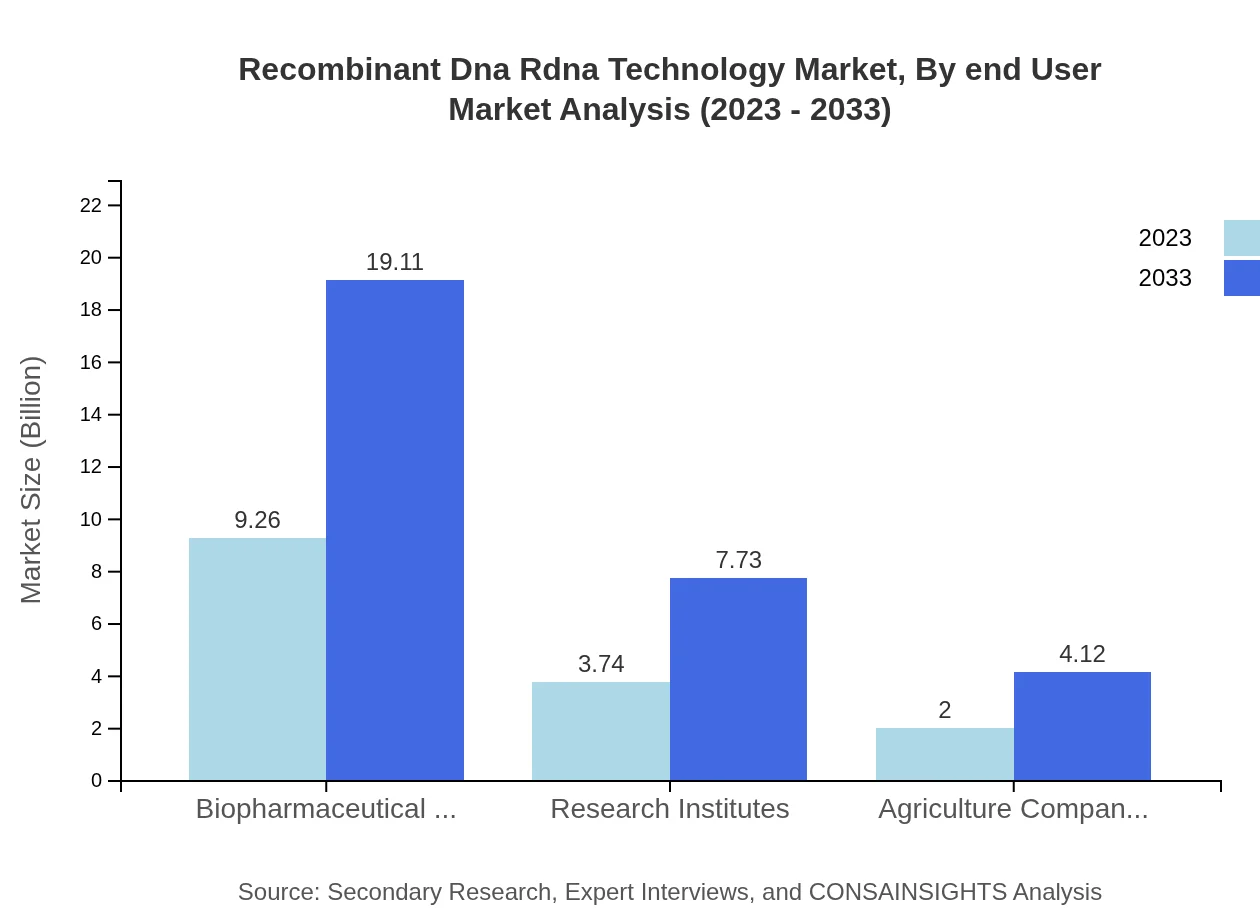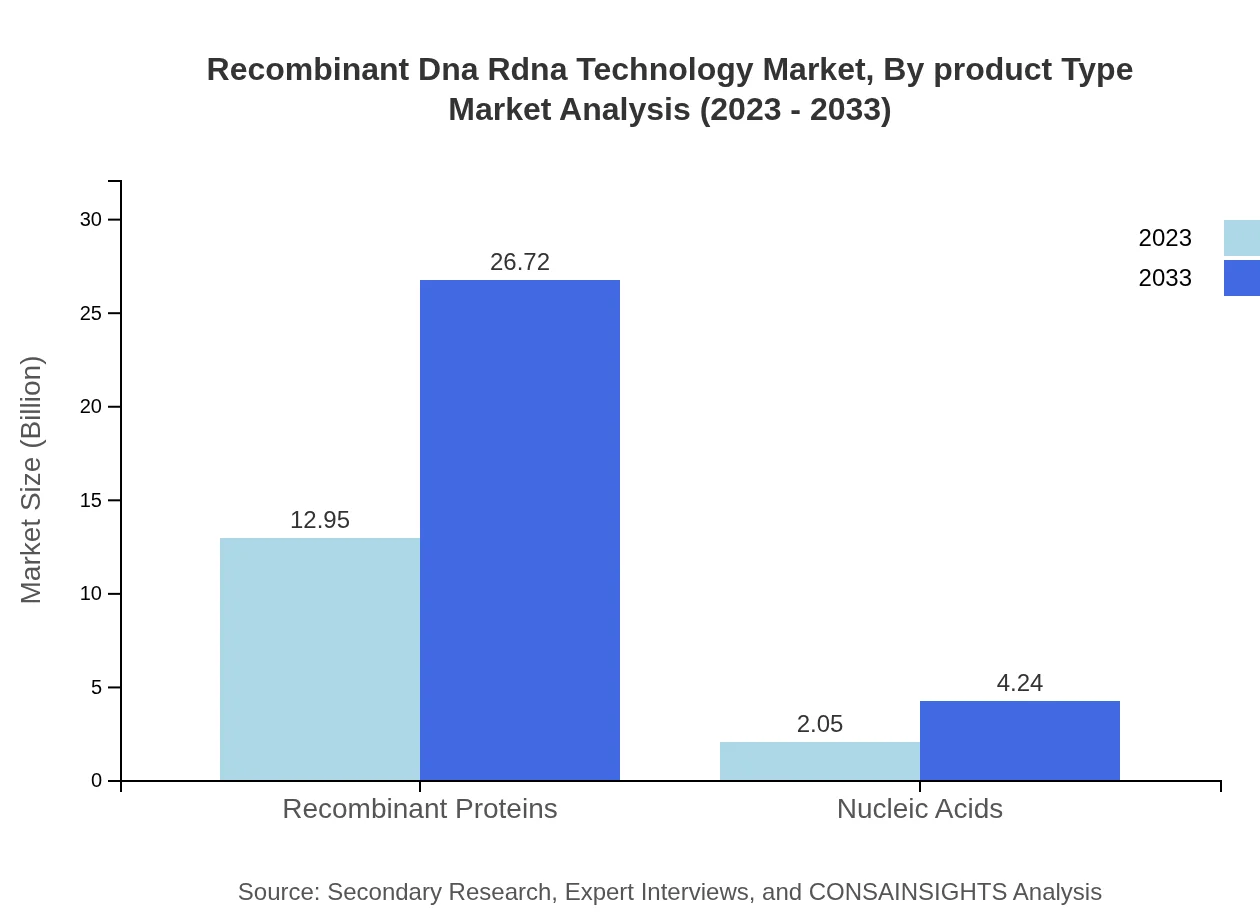Recombinant Dna Rdna Technology Market Report
Published Date: 31 January 2026 | Report Code: recombinant-dna-rdna-technology
Recombinant Dna Rdna Technology Market Size, Share, Industry Trends and Forecast to 2033
This report comprehensively covers the Recombinant DNA (rDNA) Technology market, projecting insights from 2023 to 2033. It includes market dynamics, size, CAGR, industry analysis, segmentation, regional insights, and trends shaping the future of this rapidly evolving field.
| Metric | Value |
|---|---|
| Study Period | 2023 - 2033 |
| 2023 Market Size | $15.00 Billion |
| CAGR (2023-2033) | 7.3% |
| 2033 Market Size | $30.96 Billion |
| Top Companies | Amgen, Genentech, Synthego, Novartis |
| Last Modified Date | 31 January 2026 |
Recombinant Dna Rdna Technology Market Overview
Customize Recombinant Dna Rdna Technology Market Report market research report
- ✔ Get in-depth analysis of Recombinant Dna Rdna Technology market size, growth, and forecasts.
- ✔ Understand Recombinant Dna Rdna Technology's regional dynamics and industry-specific trends.
- ✔ Identify potential applications, end-user demand, and growth segments in Recombinant Dna Rdna Technology
What is the Market Size & CAGR of Recombinant Dna Rdna Technology market in 2023?
Recombinant Dna Rdna Technology Industry Analysis
Recombinant Dna Rdna Technology Market Segmentation and Scope
Tell us your focus area and get a customized research report.
Recombinant Dna Rdna Technology Market Analysis Report by Region
Europe Recombinant Dna Rdna Technology Market Report:
Europe's rDNA technology market is estimated at $4.74 billion in 2023, expected to expand to $9.78 billion by 2033. The European Union actively promotes biotechnological research and development, influencing the market positively. Innovations in agricultural biotechnology and personalized therapies are also key growth drivers.Asia Pacific Recombinant Dna Rdna Technology Market Report:
The Asia Pacific region is poised for substantial growth in the rDNA technology market, expected to expand from $2.61 billion in 2023 to approximately $5.39 billion by 2033. The booming biotechnology sector in countries like China and India, combined with increasing investments in healthcare and agricultural biotechnologies, contributes significantly to this growth trend. Additionally, favorable government policies and a growing number of biotech startups are further enhancing the landscape.North America Recombinant Dna Rdna Technology Market Report:
The North American market remains the largest for rDNA technology, with a market size of $5.43 billion in 2023 projected to reach $11.20 billion by 2033. The region is renowned for its advanced biotechnology infrastructure, high R&D investments, and a robust pipeline of biologics. Regulatory support and innovations in gene therapies further drive this market's growth.South America Recombinant Dna Rdna Technology Market Report:
South America's market for Recombinant DNA technology is gradually increasing, projected to grow from $0.49 billion in 2023 to $1.01 billion by 2033. This growth is largely attributed to rising agricultural demands and the adoption of biotechnological solutions for food security. As governments begin to embrace genetic modifications for crops, the market potential is likely to increase.Middle East & Africa Recombinant Dna Rdna Technology Market Report:
The Middle East and Africa (MEA) region is emerging in the rDNA market, with a value of $1.74 billion in 2023 anticipated to grow to $3.59 billion by 2033. Increasing healthcare investments and the use of biotechnology in agriculture are notable trends driving the region's adoption of recombinant DNA technology.Tell us your focus area and get a customized research report.
Recombinant Dna Rdna Technology Market Analysis By Technology
The Recombinant DNA technology market is significantly influenced by various technological advancements. The major segments include cloning methods, gene editing techniques, and recombinant proteins, with cloning methods leading the market at 86.3% share in 2023, anticipated to maintain a similar position through 2033. Gene editing techniques are also gaining traction as precision agriculture and novel therapies become more common.
Recombinant Dna Rdna Technology Market Analysis By Application
By application, the healthcare sector takes precedence in the rDNA technology market, accounting for a market share of 61.72% in 2023. This segment is characterized by the production of therapeutic proteins and vaccines. The agricultural biotechnology segment is also significant, as it incorporates genetically modified crops and livestock, driving market growth.
Recombinant Dna Rdna Technology Market Analysis By End User
In terms of end-users, biopharmaceutical companies dominate the market, exhibiting a size of $9.26 billion in 2023 with an expected increase to $19.11 billion by 2033. Research institutes follow, driven by academic and clinical research needs. This diverse set of end-users showcases the broad applications of recombinant technologies across sectors.
Recombinant Dna Rdna Technology Market Analysis By Product Type
Product types in the rDNA technology market include recombinant proteins, nucleic acids, and biopharmaceuticals. Recombinant proteins lead the way in market size and share, while nucleic acids represent significant potential for novel therapies and agricultural applications, paving the way for future growth.
Recombinant Dna Rdna Technology Market Trends and Future Forecast
Tell us your focus area and get a customized research report.
Global Market Leaders and Top Companies in Recombinant Dna Rdna Technology Industry
Amgen:
A leading biotech company known for its pioneering work in therapeutic proteins, including monoclonal antibodies and cancer treatments.Genentech:
A subsidiary of Roche, specializing in the creation of targeted therapies and pioneering the use of biologics in treating diseases.Synthego:
An integrated biotechnology company focused on CRISPR gene editing solutions, providing tools and services that empower scientists in genetic research.Novartis:
A major player in biopharmaceuticals, investing heavily in cell and gene therapies to deliver innovative solutions for patients worldwide.We're grateful to work with incredible clients.









FAQs
What is the market size of recombinant Dna Rdna Technology?
The recombinant DNA and rDNA technology market is valued at approximately $15 billion in 2023, with a projected compound annual growth rate (CAGR) of 7.3%. This growth underscores the increasing importance of genetic engineering in various sectors.
What are the key market players or companies in the recombinant Dna Rdna Technology industry?
Key players in the recombinant DNA and rDNA technology industry include major biopharmaceutical companies and research institutes which lead in innovation and application. These entities play critical roles in advancing technology and market reach.
What are the primary factors driving the growth in the recombinant Dna Rdna Technology industry?
Growth in this industry is primarily driven by advancements in biotechnology, rising demand for therapeutic drugs, and increasing investments in research and development. These factors collectively stimulate market expansion and innovation.
Which region is the fastest Growing in the recombinant Dna Rdna Technology?
North America is the fastest-growing region in the recombinant DNA and rDNA technology market, projected to grow from $5.43 billion in 2023 to $11.20 billion by 2033, driven by strong innovation and vast research-related activities.
Does ConsaInsights provide customized market report data for the recombinant Dna Rdna Technology industry?
Yes, ConsaInsights offers customized market report data tailored to specific needs in the recombinant DNA and rDNA technology industry, allowing stakeholders to gain insights relevant to their operational strategies and objectives.
What deliverables can I expect from this recombinant Dna Rdna Technology market research project?
Deliverables from the recombinant DNA and rDNA technology market research project include comprehensive reports detailing market size, growth rates, regional analysis, and competitive landscape, providing actionable insights for informed decision-making.
What are the market trends of recombinant Dna Rdna Technology?
Market trends in recombinant DNA and rDNA technology indicate a growing focus on personalized medicine, significant advancements in gene editing techniques, and increasing applications in agriculture and healthcare sectors, stimulating overall market dynamics.

